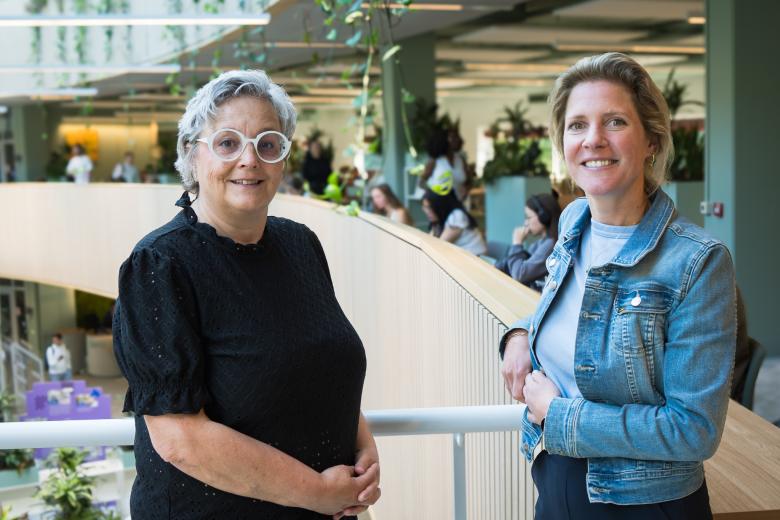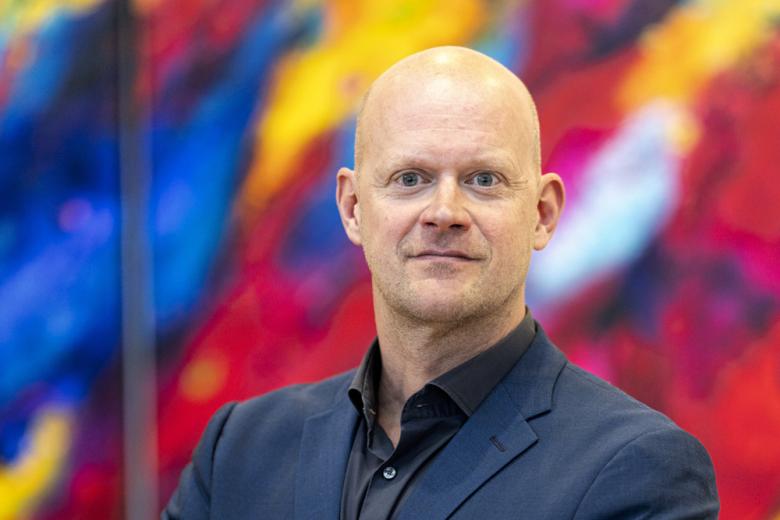Times that call for flexibility
One of the things I looked forward to in my PhD was to focus my attention on one single subject. Fast forward to last month, when my supervisor told me I should probably consider myself a full-time coronavirus researcher for the time being, as my ‘own’ topic (chlamydia management in primary care) was coming to a relative stand-still due to the virus.
When we were asked to work from home due to covid-19, I initially had a hard time adapting. Not only did my milk creamer break after several days, I also missed the presence of my colleagues who, I learned, contribute largely to both my relaxation and work ethic during the hours spent at the department. What’s more, it became clear that all general practitioners, the microbiology departments and the public health institutes – the three key players upon which my PhD research would be built – were going to be preoccupied with covid-19 in the coming months, and my project would likely be delayed. In addition, with 1,5 meters distance between people, the amount of chlamydia infections and diagnoses also wasn’t likely to skyrocket.
Luckily, there was still literature research to do and a database for me to work on. Circumstances that I know not all of my colleagues with projects requiring a laboratory or other physical materials and/or people were fortunate enough to have.
Yet, I felt a need to do something against covid-19. As a freshly graduated doctor, I dutifully signed up on all kinds of clinical lists to make sure people and institutions could find me if they needed extra hands, but in this region the amount of personnel seemed to still be sufficient. Additionally, I replied to a call from Maurice Zeegers to participate in a living review on coronavirus data and let my supervisor (Jochen Cals) know that, if I could contribute in any way in his GP practice or with any covid-19 related research, I would gladly offer my time.
To my surprise, Maurice invited me to work on the review - one of the 20 living review initiatives on covid-19, I learned, that are supported by and affiliated to the WHO - and within days I found myself in a Zoom meeting with nine other reviewers from all over the country, getting briefed by Maurice on how to proceed. Together with a team mate (Annemarie Venemans) I am now responsible for the literature search, whereas other pairs and triplets within our team take care of data extraction, quality determination and statistical analysis. Just two weeks ago we published the protocol of the systematic review on Prospero, and Maurice is putting in effort to make our preliminary results and forest plots available to the public on a webpage. The team is extremely energetic and motivated and it’s a pleasure to see how the review wins quality by our Friday afternoon discussions.
At around the same time, Jochen had kept my offer to help in mind and asked if I wanted to take on the data analysis for the national general practitioner data on tested and untested covid-19 patients. Of course I did. Two weeks later, I was running SPSS to analyze data from the Consortium Huisartsgeneeskunde that Jochen and Marco (Blanker) would present to over 5000 general practitioners via the weekly covid-19 webinar and to the general public via national newspapers and television (links). Knowing that you’re running numbers that will be used to directly inform the national public health institute (RIVM) and policy makers really helps in motivating you to double and triple check your syntax.
Mascha Twellaar, one of our department’s research assistants, absolutely helped me in reducing the amount of obligatory manual cleaning work from each dataset to the next by setting up an additional syntax.
I previously looked forward to working on a single topic. Now my hope is that, whatever the work may comprise, it involves many inspired colleagues. When people get together based on motivation, you feel the energy in having a common goal and there is plenty of positive, creative thinking to overcome obstacles. I see it in the living review team, I see it in the meetings with Jochen, Marco and the collaborators for the GP data, and I now recognize it as the shared factor in my most satisfying meetings and projects.
And as for the PhD project on chlamydia management in primary care? I am sure the introduction of the 1,5 m rule will provide plenty to research in the field of sexual health the coming years - as well as its abolition.
Also read
-
Study Smart gets Dutch Education Premium
Maastricht University's (UM) interfaculty educational innovation project Study Smart is one of the three winners of the Dutch Education Premium 2025. This was announced on Tuesday during the Comenius festival in The Hague.

-
Randwyck Library and the river of knowledge
Monique Notermans and Meike Kerkhofs-Welkenhuizen witnessed the vision behind a modern library come to life.

-
Is the risk of cancer the same for everyone?
Valery Lemmens (GROW) conducts research on cancer, prevention, and how society is designed for making unhealthy choices.
